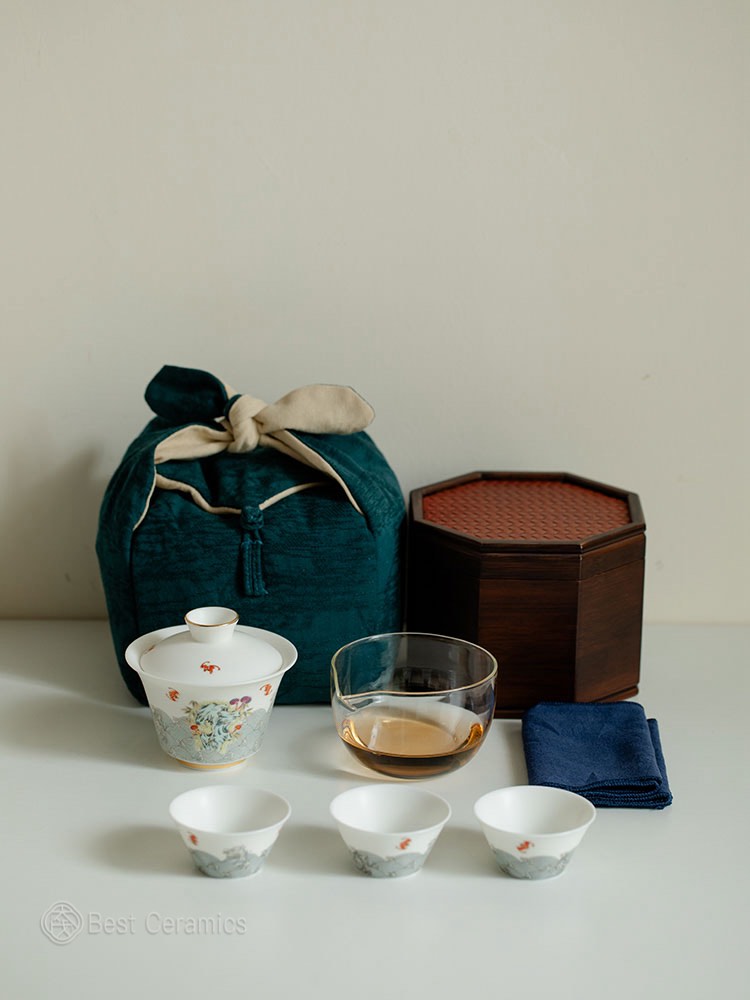The Perfect Match: Gaiwan and White Tea
The gaiwan’s design is simple yet highly functional. Its wide open mouth and lightweight lid make the brewing process more flexible. White tea is known for its subtle aromas, including floral, herbal, and the fresh scent of new leaves, while aged white tea develops medicinal and jujube-like notes. These aromas can be perfectly highlighted when brewed in a gaiwan. With its quick infusion and pour, the tea liquor is bright, smooth, and sweet, reminiscent of silk, which brings out the unique thick sweetness of white tea.
The adjustable opening of the gaiwan allows for controlled brewing, and once hot water is poured in, the tea liquor can be quickly drained, releasing a fragrant aroma, and a delightful cup of tea is ready. The pairing of gaiwan and white tea is like a match made in heaven, where the gaiwan presents every nuance of the tea without compromising its original aroma.
The Impact of Other Teaware on White Tea
Unlike the gaiwan, a Yixing clay teapot (Zisha teapot) is not ideal for brewing white tea. Yixing teapots are porous and absorbent, which can diminish the tea's natural aroma and flavor, making it lose its distinctive character. Therefore, true white tea enthusiasts prefer using a gaiwan over a Yixing teapot to preserve the tea's authenticity.
Tips and Steps for Brewing White Tea
The key to brewing white tea lies in controlling the water temperature and steeping time. White tea, often a fresh or lightly fermented tea, is best brewed with water at 85 to 90°C (185 to 194°F). Begin by placing the appropriate amount of white tea into the gaiwan, pour in hot water, and quickly cover it with the lid. The gaiwan's design ensures even heat distribution, allowing the tea leaves to release their aroma and flavor fully. After 30 seconds to one minute, pour out the tea liquor and take a sip to experience the changes in flavor within your mouth.
The brewing process for white tea emphasizes the harmony between the color of the tea liquor and its aroma. When brewed in a gaiwan, the tea liquor usually appears light yellow to pale green, with a gentle fragrance and a mellow taste. Compared to other types of tea, brewing white tea is relatively easy, but mastering the technique is essential to bringing out the best in each cup.
In conclusion, the gaiwan is the best choice for brewing white tea, as it perfectly preserves and highlights the tea's unique aroma and flavor. The pairing of white tea and gaiwan is like soulmates, enhancing each other and offering tea lovers an exquisite experience.














































0 comments